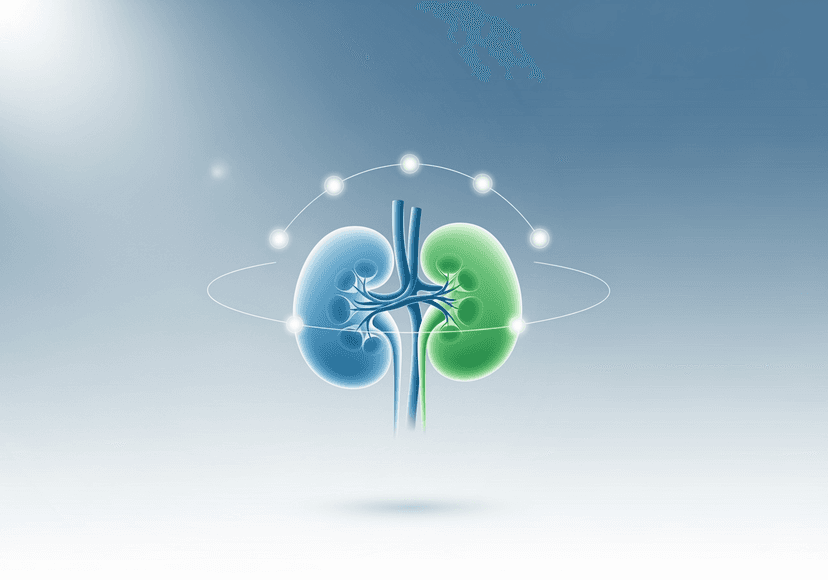
Kidney Transplant and Exercise: Getting Back in Shape
11 Oct, 2024
 Healthtrip
HealthtripReceiving a kidney transplant is a life-changing event that brings new hope and a fresh start for individuals struggling with kidney disease. As you embark on this new chapter, you may wonder how to get back in shape and regain your physical strength. Exercise plays a vital role in your recovery, improving overall health, and reducing the risk of complications. In this article, we'll explore the importance of exercise after a kidney transplant, discuss the benefits, and provide guidance on creating a safe and effective workout plan.
Why Exercise Matters After a Kidney Transplant
Regular exercise is crucial for kidney transplant patients, as it helps to improve cardiovascular health, increase strength, and enhance overall physical function. A sedentary lifestyle, on the other hand, can lead to a range of complications, including obesity, diabetes, and heart disease. Exercise also plays a significant role in reducing the risk of kidney rejection, as it helps to improve immune function and reduce inflammation. Furthermore, regular physical activity can boost mental health, reducing stress and anxiety, and improving overall quality of life.
Most popular procedures in India
The Benefits of Exercise for Kidney Transplant Patients
Exercise offers numerous benefits for kidney transplant patients, including:
• Improved cardiovascular health: Regular exercise helps to strengthen the heart and lungs, reducing the risk of heart disease and stroke.
Wellness Treatments
Give yourself the time to relax
Lowest Prices Guaranteed!

Lowest Prices Guaranteed!
• Increased strength and mobility: Exercise helps to build muscle mass and improve flexibility, making daily activities easier and reducing the risk of falls.
• Enhanced immune function: Exercise boosts the immune system, reducing the risk of infection and rejection.
• Better mental health: Regular physical activity reduces stress and anxiety, improving overall mental well-being.
• Weight management: Exercise helps to maintain a healthy weight, reducing the risk of obesity and related complications.
Creating a Safe and Effective Workout Plan
Before starting any exercise program, it's essential to consult with your healthcare provider to discuss any limitations or precautions. They will help you create a personalized workout plan that takes into account your individual needs and health status. Here are some general tips to get you started:
Start Slow and Gradual
It's essential to start slowly and gradually increase the intensity and duration of your workouts. This will help to prevent fatigue, injury, and burnout. Begin with short, gentle exercises, such as walking or stretching, and gradually progress to more strenuous activities.
Incorporate Aerobic Exercise
Aerobic exercises, such as cycling, swimming, or brisk walking, are excellent for improving cardiovascular health. Aim for at least 30 minutes of moderate-intensity aerobic exercise per session, three to four times a week.
Strength Training is Crucial
Strength training exercises, such as weightlifting or resistance band exercises, help to build muscle mass and improve overall strength. Focus on exercises that target major muscle groups, such as the legs, arms, and core.
Flexibility and Stretching Exercises
Incorporating flexibility and stretching exercises into your workout routine can help to improve range of motion and reduce the risk of injury. Focus on exercises that target major muscle groups, such as the hamstrings, quadriceps, and hip flexors.
Overcoming Common Challenges
As you embark on your exercise journey, you may encounter common challenges, such as fatigue, pain, or limited mobility. Here are some tips to help you overcome these obstacles:
Listen to Your Body
It's essential to listen to your body and rest when needed. If you're experiencing fatigue or pain, take a break and consult with your healthcare provider.
Find an Exercise Buddy
Exercising with a friend or family member can help to boost motivation and accountability. Find someone who shares your fitness goals and schedule regular workout sessions.
Celebrate Small Victories
Celebrating small victories, such as increasing your walking distance or completing a workout session, can help to boost motivation and confidence.
In conclusion, exercise plays a vital role in the recovery and overall health of kidney transplant patients. By incorporating regular physical activity into your lifestyle, you can improve cardiovascular health, increase strength, and enhance overall physical function. Remember to start slowly, listen to your body, and celebrate small victories along the way. With patience, persistence, and the right guidance, you can achieve your fitness goals and enjoy a healthier, happier life.
Most popular wellness packages
Related Blogs

How Healthtrip Ensures Quality & Safety in Kidney Transplant Procedures
Detailed guide on kidney transplant, featuring doctors, hospitals, risks, recovery,

End-to-End Logistics for Kidney Transplant with Healthtrip's Support
Detailed guide on kidney transplant, featuring doctors, hospitals, risks, recovery,

Healthtrip's Care Coordinators: Your Support During Kidney Transplant
Detailed guide on kidney transplant, featuring doctors, hospitals, risks, recovery,

Top 5 Indian Hospitals for Kidney Transplant
Detailed guide on kidney transplant, featuring doctors, hospitals, risks, recovery,

Post-Kidney Transplant Diet and Lifestyle Tips
Detailed guide on kidney transplant, featuring doctors, hospitals, risks, recovery,

Common Risks in Kidney Transplant and How Healthtrip Manages Them
Detailed guide on kidney transplant, featuring doctors, hospitals, risks, recovery,










